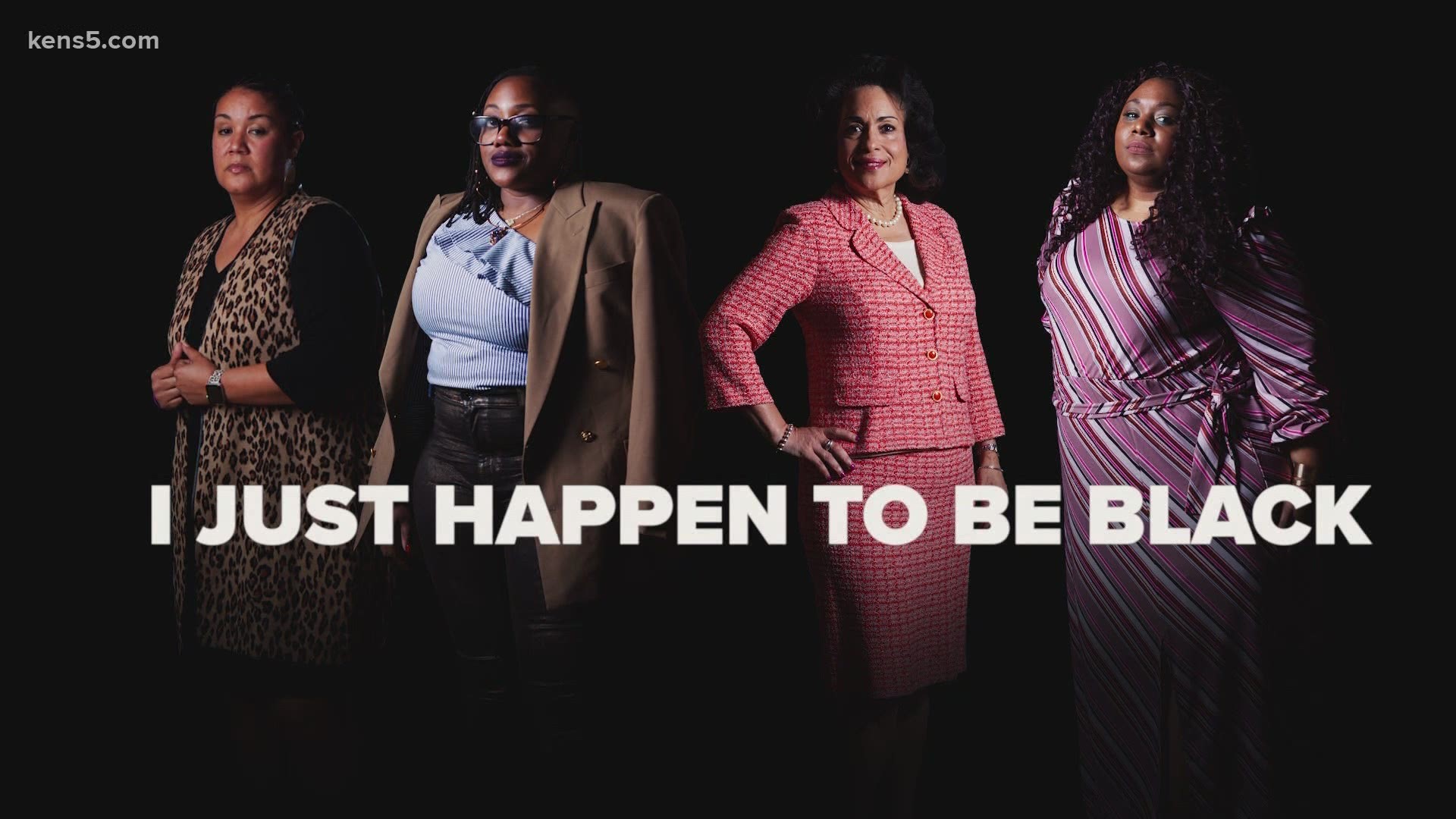Black women have their say about being a Black woman | Together We Rise
Four Black women and a teenager share their account of life in a world where they experience maligning and are considered angry.
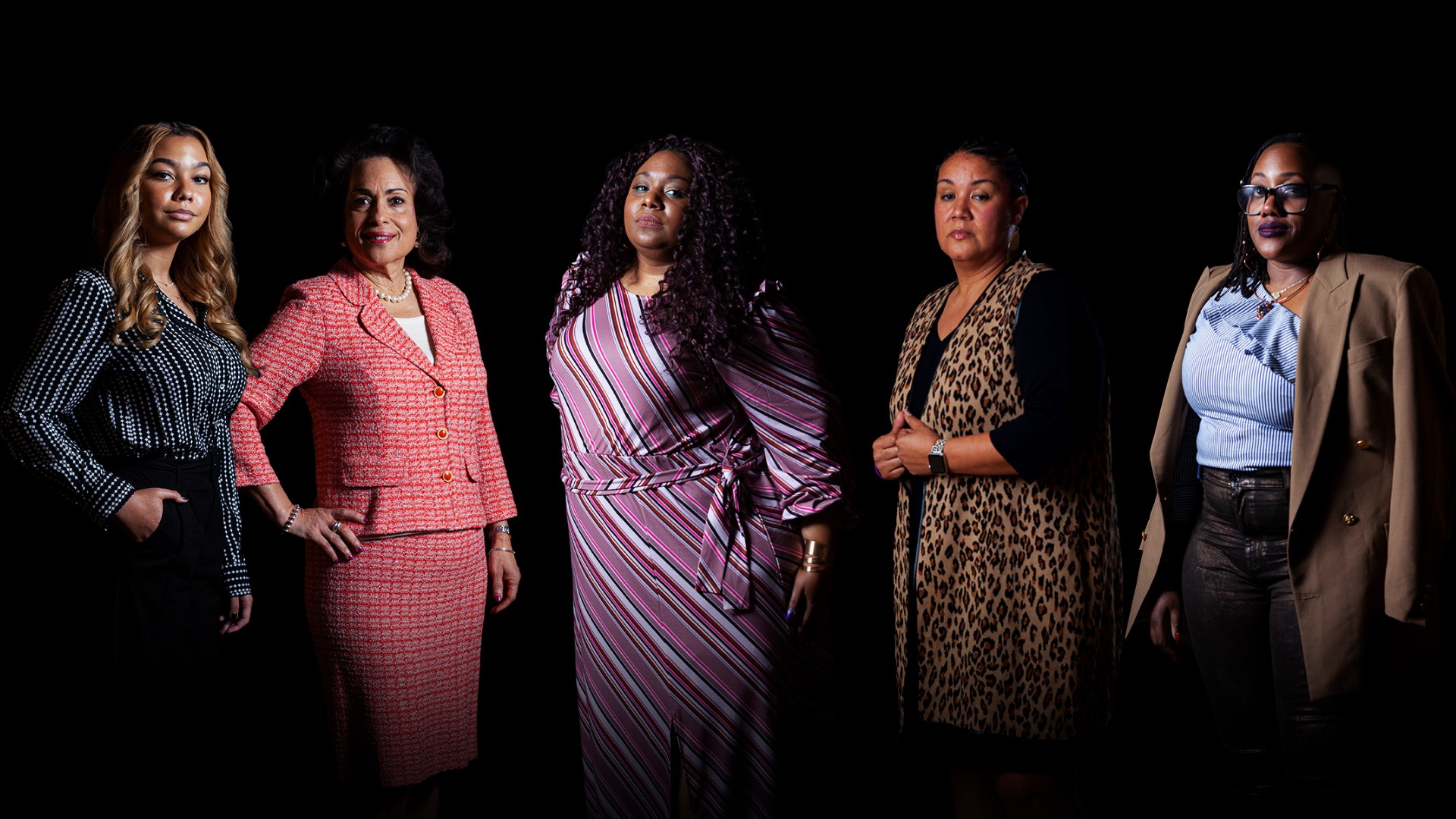
The Jack Guenther Pavilion at the Briscoe Museum was an empty room until four Black women and a 16-year-old girl filled the space with their stories.
As a part of a new series at KENS 5 called 'Together We Rise,' the five shared the challenges of being a Black woman.
'Together We Rise' results from a months-long conversation about South Texas's racial issues. The series pledges to shine a light on topics that may divide our community to find the pathway to uniting us.
Here are the challenges confronted by a local basketball coach and educator, a public relations maven and activist, a businesswoman, San Antonio's first African-American poet laureate, and a senior in high school.
"African-American women have historically just been disrespected." Coach Tamiko Matthews

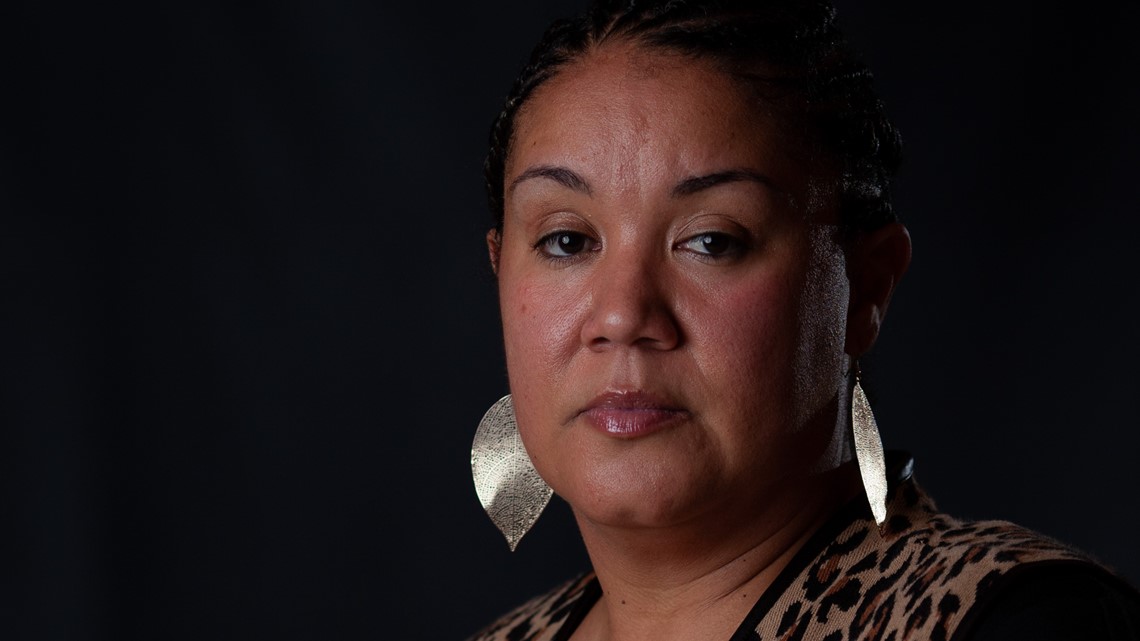
Putting a dress on is a big deal for Tamiko Matthews. She can wear them. But they are just not her thing.
Talking about her childhood is the same way. Matthews can do it. It's just not something the 42-year-old often does.
"My mother didn't really have the ability to be a good mother," Matthews said. "Because she wasn't mothered."
Matthews grew up on San Antonio's eastside, raised primarily by the man she knew as her father. Her biological father was not in the picture.
The memories of her mother are not stellar.
"My interactions with my mother---when she was around---I mean, it was alcohol or drug-induced," she said.
Matthews came up in the Denver Heights during its crime ills. She acknowledges being as tough as the neighborhood.
Without the constant of a mother under the roof, she became a mother-figure for her younger brothers.
"I didn't like being a girl when I was young in the area I grew up in," she said. "The women I saw I really didn't feel like I could identify with."
So, she evolved into a tomboy who played football with the guys and preferred action figures over baby dolls.
"My dad would like try to buy me a Barbie doll every once in a while, and I would shave the head," Matthews said. "It would be like the captive with my GI Joes as the prisoner."
Her natural grit to survive, sports, and academics paved the way for the San Antonio Independent School District educator. Female relatives, family friends, and even an elementary school principal whispered success, feminism, and womanhood into her life.
"I was blessed to be exposed to some amazing women when I was younger," she said.

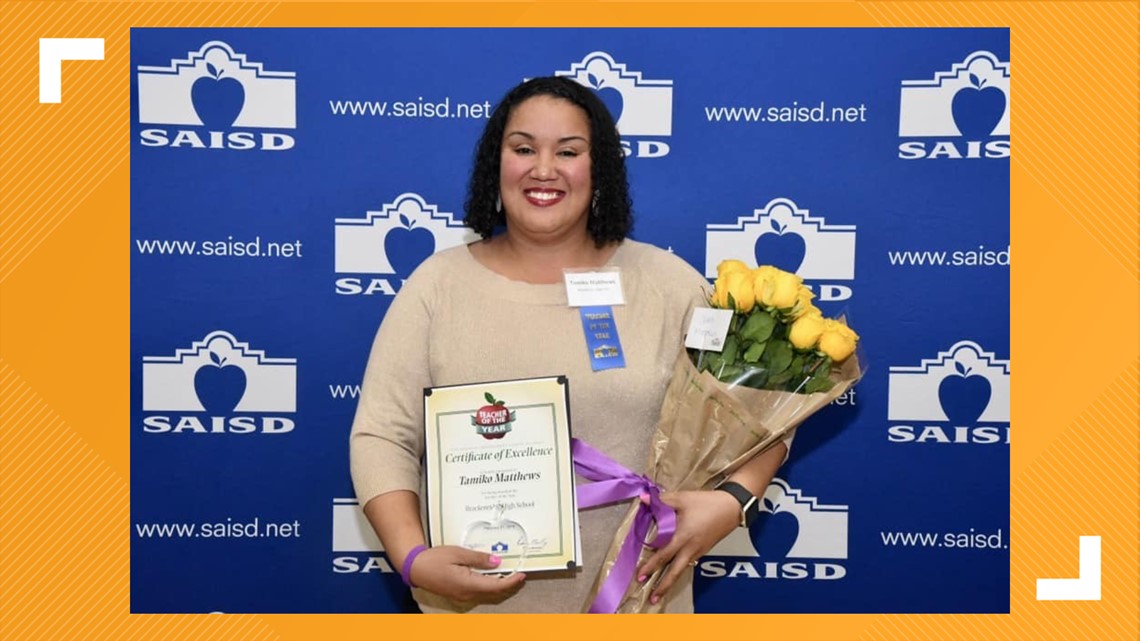
Education was not a high expectation in her home, she said. Yet, that never deterred her from graduating in circumstances where her brothers' needs were her priority---all she tried to figure out who she was.
Matthews graduated from Texas A & M University. She was in the military—both kryptonite to ills of her upbringing. Neither covered her for the challenges of being a Black woman.
The Brackenridge High School Girl's basketball coach remembers being asked, 'What are you?'
"I don't need to be in anybody's box, right?" she said. "The fact that I am comprised of so many different things is what makes me amazing."
Matthews is biracial---a blend of Puerto Rican and African-American.
"That's the thing for biracial people; you're not Black enough," Matthews said. "You're never going to be white enough either."
The San Antonio native remembers her father joking that she got dropped in mop water as a child.
"Your mom dropped you in mop water," she recalled. "That's where all your color went. And, I was like, well, that makes sense."
She's in control of the facts in her classroom at Brackenridge Ridge High where she launched the campus' African-American History curriculum this year.
"African-American women have historically just been disrespected. I mean, since the beginning, when you talk about the 15th Amendment," she said. "The 15th Amendment didn't give all free slaves the right to vote in specific while African-American males, females were kind of left out."
According to Matthews, her passion for students and their well-being can get tarnished. She remembers a job outside of SAISD where her attitude did not gain popularity.
"I had colleagues that would go to the principal," she said. "She's militant, or she's being very aggressive."
Matthews said it adds to an ongoing myth about Black women being angry.
"Historically Black women have not been championed," she said.
As an educator, the eastside product believes she's a liberator. Part of her job is to get students to believe they can make it---like she did.
"Respect yourself. Respect the power that you have. Respect the beauty that you have," she said. "Love yourself even when you feel like no one else does...because that is a gift."
A 20-foot mural of Matthews exists in her former neighborhood near the corner of Aransas and Pine.

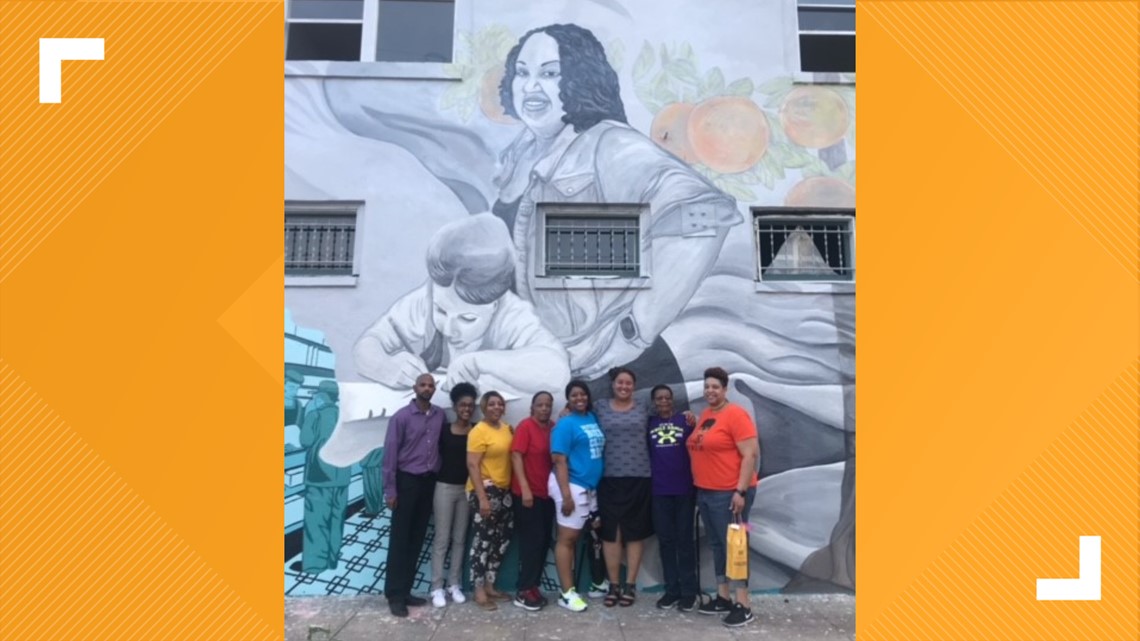
"The assignment was to write about how slavery affects the slave owner." Piper Vann-Morgan

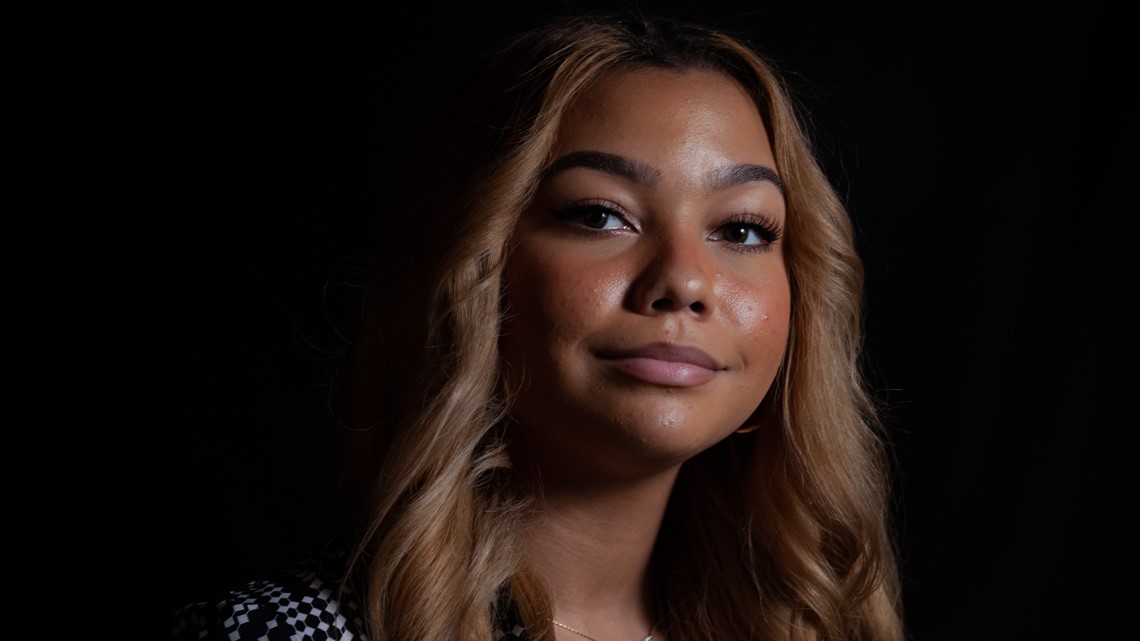
Piper Vann-Morgan is days away from her 17th birthday. She's also months away from graduating from Incarnate Word High School.
The 16-year-old senior said she isn't quite ready to leave the high school years, even with a 1250 on her SAT.
"I want to go into psychology," Vann-Morgan said.
The college-bound North Carolinian continues to accrue life experiences but her years at a former private school in San Antonio bring back memories she'd rather forget.
"I've grown up in private school all my life, and most of my teachers have also gone to private school," she said. "They are not exactly racially sensitive, to say the least."
Vann-Morgan attended the school from 7th-11th grades. She said one of her instructors gave an assignment that did not make sense.
"One of the assignments was to write about how slavery affects the slave owner---whether that actually affects the slave," she recalled.
Then, she said another assignment required students to write about the pros and cons of slavery.
Vann-Morgan said, transferring to Incarnate Word High School took her out of that environment. But it hasn't removed her from uncomfortable experiences with race.
"Having friends that go to private school, they're not the most immersed in racial issues," she said.
The teen said her friends believe it's acceptable to use the 'N' word in her presence as long as it's in a song.
"I say, you shouldn't say that," she said. "They're like, oh, it's just a song."

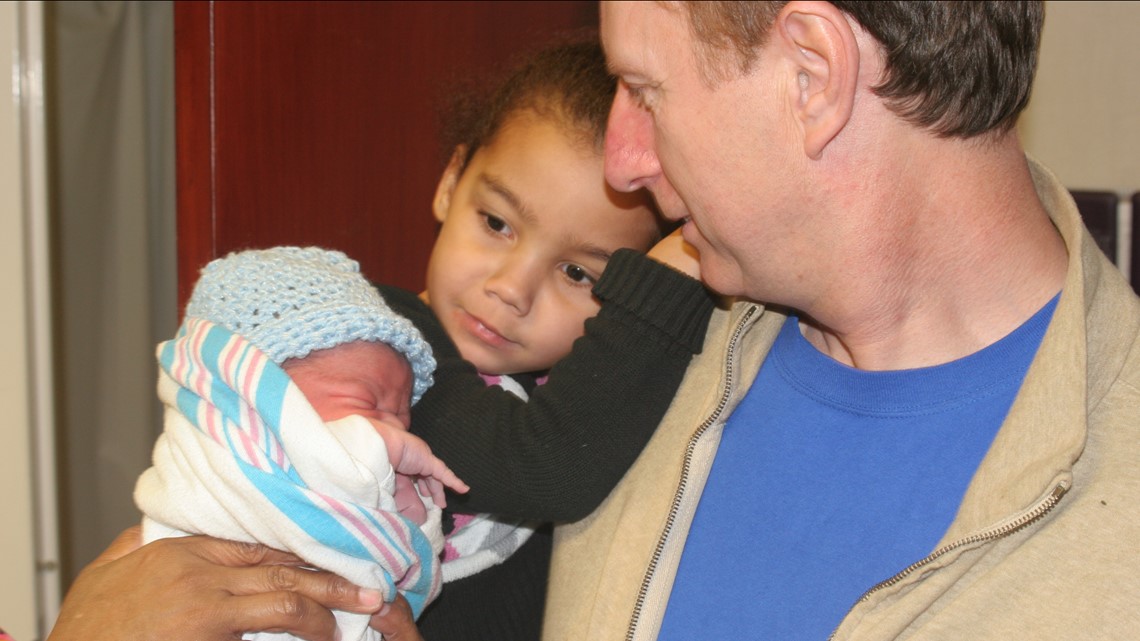
Her greatest challenge, at this point, is fitting in the child of an interracial marriage.
"The Black kids would tell me that I'm not really Black or like they would joke around with me---Like, you only have half of a Black card," she said.
So-called 'Black cards' are inner-racial attributions created to qualify Blacks within their race. The floating qualifications shift depending on the qualifier.
"Are you an Oreo or vanilla wafer," Vann-Morgan recalled.
The teen, who models and practices the sport of fencing, expects more of the same, if not worse, when she goes to college.
"I feel like I can't really talk about it as much as someone that would be darker because they've experienced more (pain)," she said.
In the era of Black Lives Matter, the teen said racial reckoning and social injustice are not conversations she expects to have in the classroom.

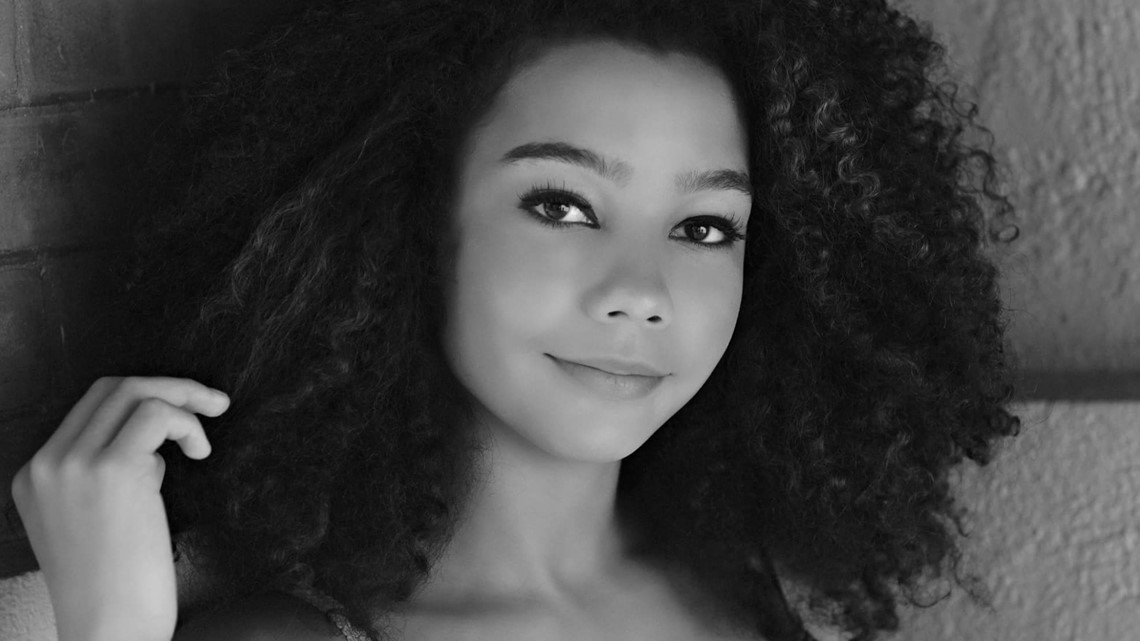
"She used the 'N' word. And I remember just being frozen." Jelynne LeBlanc-Jamison

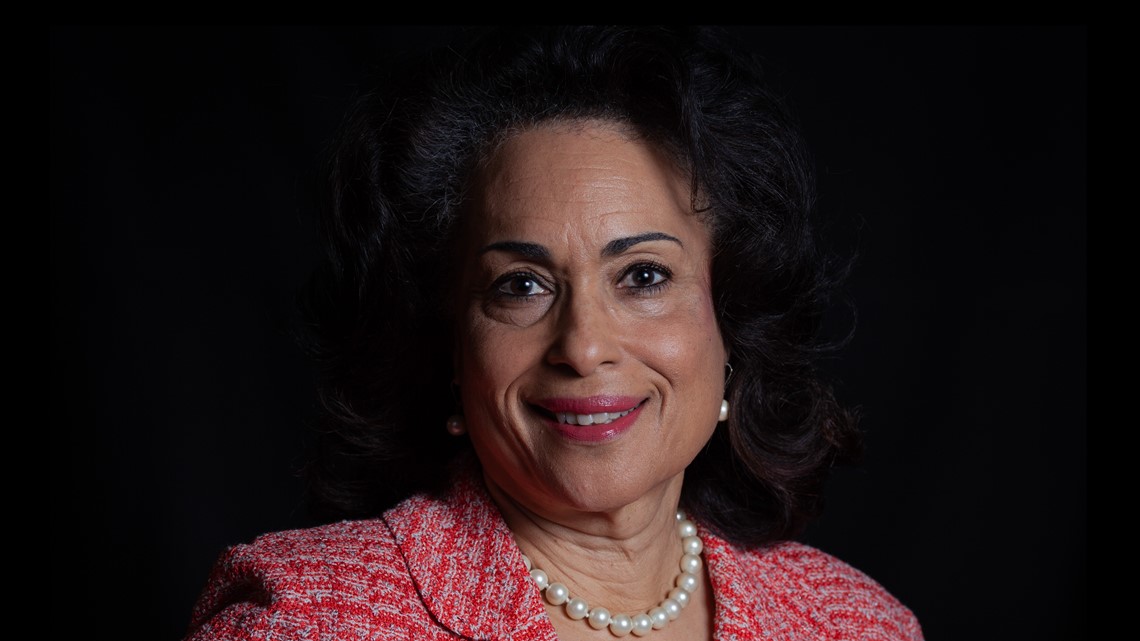
Every paragraph of Jelynne LeBlanc-Jamison's biography is a layer of success connected to her roots. The 60-year-old said she does not see titles. Instead, the Louisiana native sees service.
"I benefitted from having two strong women in my life: my grandmother and my mother," LeBlanc-Jamison said.
She is currently the President and Chief Executive Officer of The Center for Health Care Services. Before that, LeBlanc-Jamison served as the Executive Vice-President and Chief Delivery Officer for CPS Energy. She also held the job as Deputy City Manager. Plus, the businesswoman is a director for NuStar GP Holdings and is sitting on professional and non-profit boards throughout San Antonio.
"I'm originally from Baton Rouge, Louisiana. I grew up there," she said. "Born in Ohio. Not many people know that."
Her parents lived in Yellow Springs, Ohio, because her father worked at Antioch University. The two divorced when LeBlanc-Jamison was very young.
Audrey Daste, her mother, left the Southern University Law School in 1958 before their move to Ohio.
She brought her daughter back to Baton Rouge, where Daste was the first African-American woman licensed to practice law in East Baton Rouge Parish.
"I lived in two different worlds. In the 60s and 70s, Baton Rouge was still very segregated," she said.
LeBlanc-Jamison integrated her elementary school, St. Joseph's Academy.
"I stayed there for eight years and, then, asked my mother, 'Are we done with this experiment," she recalled.
Her mother worked for Southern University. LeBlanc-Jamison said her mother raised her on the campus of the historically Black college enrolled in its preparatory school.
"Primarily, my social life and my support mechanisms were rooted in my neighborhood and in my mother's work environment," she said.
The security of being a socially elite African-American did not fend off the evil of racism.
She recalls an invitation to a classmate's birthday party during her Catholic school days. Her classmate's father, a sitting judge, rented out Leo's Roller Rink in Baton Rouge.
"I remember walking in with my mother, and this woman standing behind the desk just yelled out when I walked in, we don't serve---and she used the N-word," LeBlanc-Jamison said. "And I remember just being frozen and knowing that whatever she was saying was not good."
She said the judge and her mother handled the situation. But it killed her mood to party. The San Antonio Healthcare CEO couldn't make sense of the problem, or the name yelled at her.
"I wasn't really sure what it was, but I knew that I didn't want one of those either," she said.
LeBlanc-Jamison's grandmother was Rosalie Guidry-Daste, whose white father hailed from France. He owned land in Baton Rouge that was stripped from her grandmother when he died---because she was a Black woman. Before she died, Guidry-Daste received reparations.
"She was probably the most intelligent, uneducated woman I know," LeBlanc-Jamison said. "She instilled in all of us a duty to be great, be excellent at whatever you do. But with it, she also made us aware of the burden of representation."
Those lessons helped elevate LeBlanc-Jamison in the San Antonio community, where she attended grad school at Trinity University.
"It's a very complex and complicated experience to be a woman, an African-American woman," she said.
And, some lessons continue. LeBlanc-Jamison remembers her teacher removing her tie from her uniform on picture day---which meant being on the back row.
She said her experience as a Black woman is similar--unfair placement.
"We have to always smile and have a pleasant face because we're just angry Black women," she said. "We cannot look serious or be expressive in our delivery, or it is taken out of context."
She said it's an evaluation always anticipated for her---and she's over it.
"For African-American women, you know, I can say honestly, I am exhausted," she said. "But I'm also exhilarated."
She draws part of their excitement from having the country's first female vice president, a woman of color and Asian descent.
"This count is an experiment, and it continues to evolve," she said.
The mother of two said there is not resting on her laurels as she prepares for a new grandchild. She plans on passing on the strength and wisdom to women who will receive it.
"In 2021, we're still celebrating the fact there are women---of all races and color---that are just attaining status," she said.
"They assume, though, that maybe I'm threatening or intimidating." Andrea 'Vocab' Sanderson

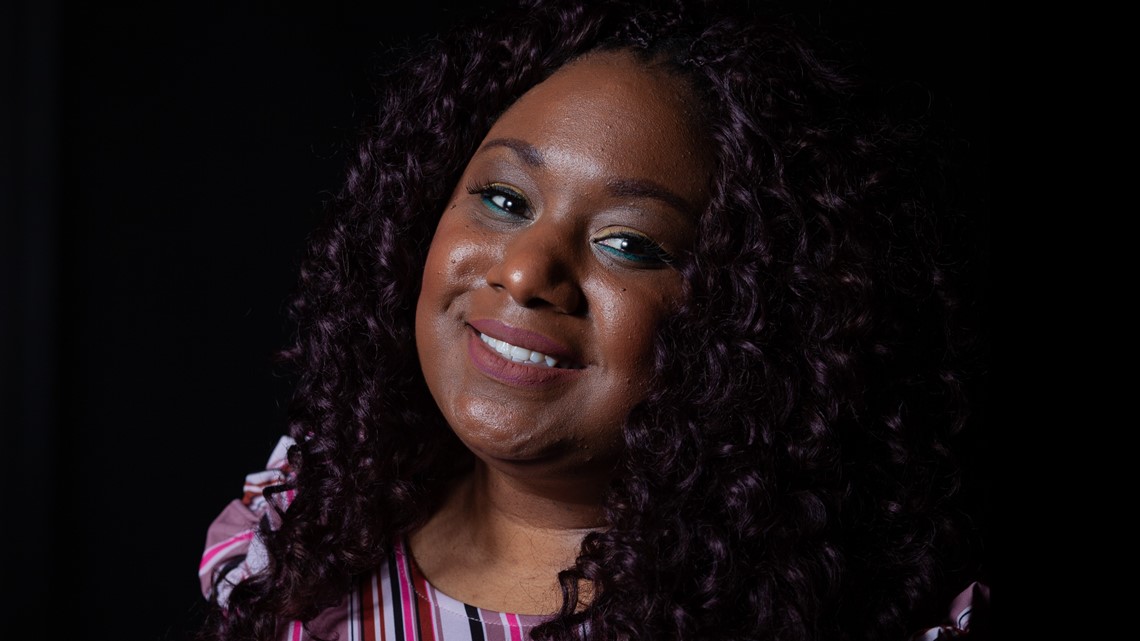
Rapper, singer, performer, writer, poet are applicable for Andrea 'Vocab' Sanderson.
She used to read the dictionary and is fond of speech. The product of a military family in San Antonio, she's the city of San Antonio's first African-American poet laureate.
The juvenile justice worker said she'd taken her share of verbal blows.
"I think a lot of the more so the discrimination I faced was more so size-related than race-related,"' she said. "But I mean, I've been called all of it and dealt with all of it."
The 39-year-old was born on San Antonio's Westside, the daughter of a preacher. That didn't shield her from being called names and insulted.
"It starts with B's and H's and things of that nature," she said.
Sanderson said she quickly learned to become charming and funny to disarm situations.
Her talent in poetry and performing gave her a platform. But platforms are not fortresses. According to Sanderson, she still got viewed as a threat.
"They assume, though, that maybe I'm threatening or intimidating," she said. "I don't know if it's because of my talent or because of my skin color or because of my size or a combination of all three."
She is learning to focus her energy on faith, positivity, and understanding the shortcomings of opinions.
"We have a lot of insecurities as human beings, and we measure ourselves, or other people measure," she said. "We're discriminated against, and we face a lot of things."
"I'm a strong woman. I just happen to be Black." Christian Reed-Ogba

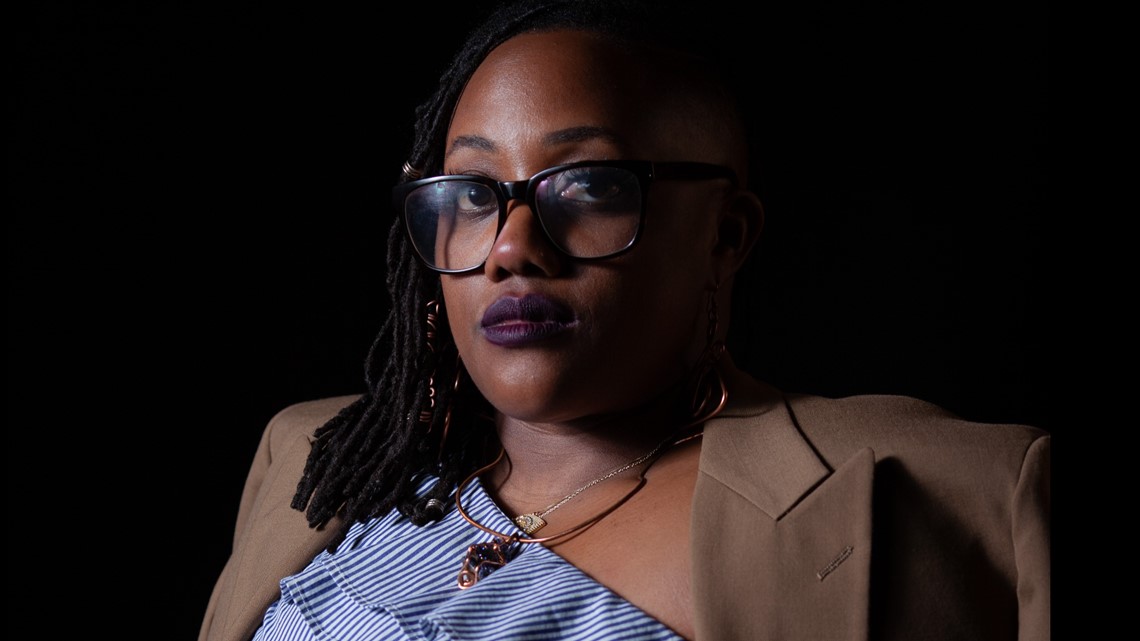
Christian Reed-Ogba is an explorer at heart. Trying to find unique pictures to post for her blog 'Black in the City 313' took this artsy woman into places some would question in her native Detroit.
"And Detroit was a beautiful wonderland for me," Reed-Ogba said.
But crossing the line is what the seemingly fearless Reed-Ogba does, fluidly.
Her grandmother owned an African arts import store. Reed-Ogba's mother got immersed in Detroit's art scene, which opened that door for her daughter.
Galas, galleries, museums, and art-exploration filled is how the San Antonio public relations maven describes her days in Motown.
"A lot of what I'm doing right now has never really been in my plans," she said.
More exploration. The University of Michigan graduate taught and worked as a Blue Cross Blue Shield junior executive before the shifting job market brought her to San Antonio ten years ago.
"I recognized early I was the only black woman in attendance and a lot of events, and this was just ten years ago," Reed-Ogba said.
Tech events in the Alamo City, according to Reed-Ogba, were predominantly caucasian.
She can walk into the room as the co-owner of Ehcu Public Relations. Her husband, Uche is the namesake.
"It was a lot of moments where I said, you know, this is uncomfortable, but if I just dig deep, I can make room for someone else," she said.
Reed-Ogba said of her experience in breaking into the San Antonio market and surviving; it's a balancing act of voice and image.
"I've had people that want to handhold me and try to cultivate a change that will make others comfortable," she said. "My greatest challenge is having a voice in the sense that I have to be very specific in what I say and how I say it."
The 36-year-old said it's hard trying to translate her words in a way where others don't feel she's an 'angry Black woman.'
"The way I speak shouldn't be micromanaged by myself or anyone else, " Reed-Ogba said. I never thought that I would be my own client."
The wife and businesswoman said African-American women who had hiring power never gave her a chance when she was trying to find work ten years ago.
"A lot of people don't know this...When I moved to San Antonio, I had almost 200 job interviews," she said. "And I got maybe two or three calls back."
The lack of workforce interest led to her becoming an entrepreneur. It also opened made her realize Black and Brown women are not helping each other enough.
"Bless our white allies, bless their hearts, they're doing the best that they can," she said. "But we have millions of Latinas that still see a divide between sisters and Latinas."
These days Reed-Ogba is not shifting her voice or image. She said her comfort in her skin matters.
"I'm a strong woman. I just happen to be black," she said.



